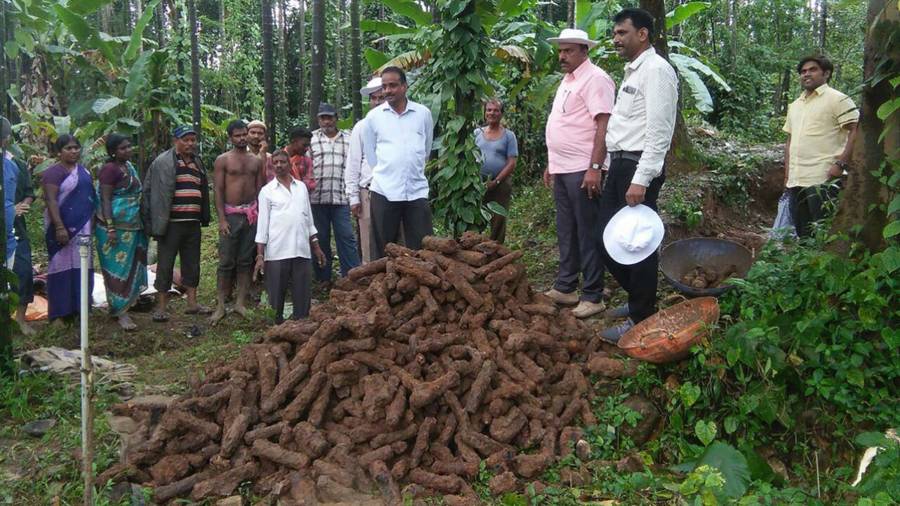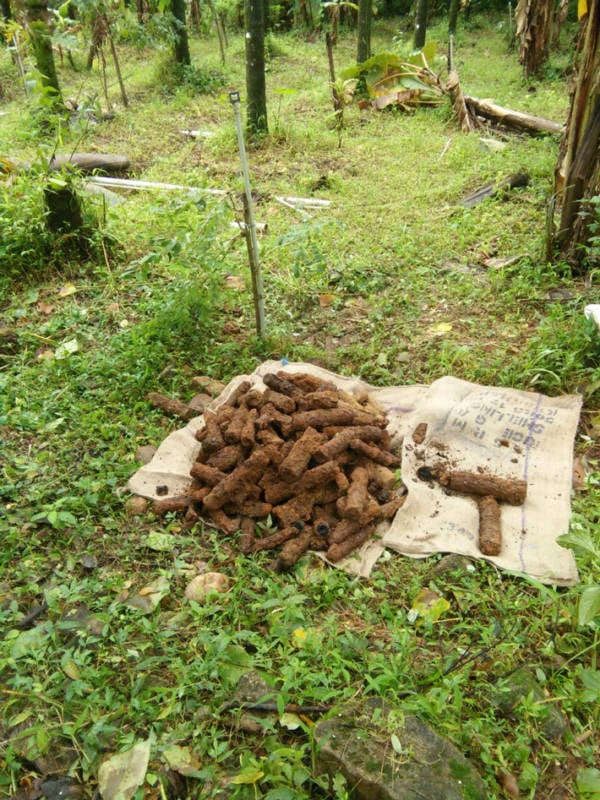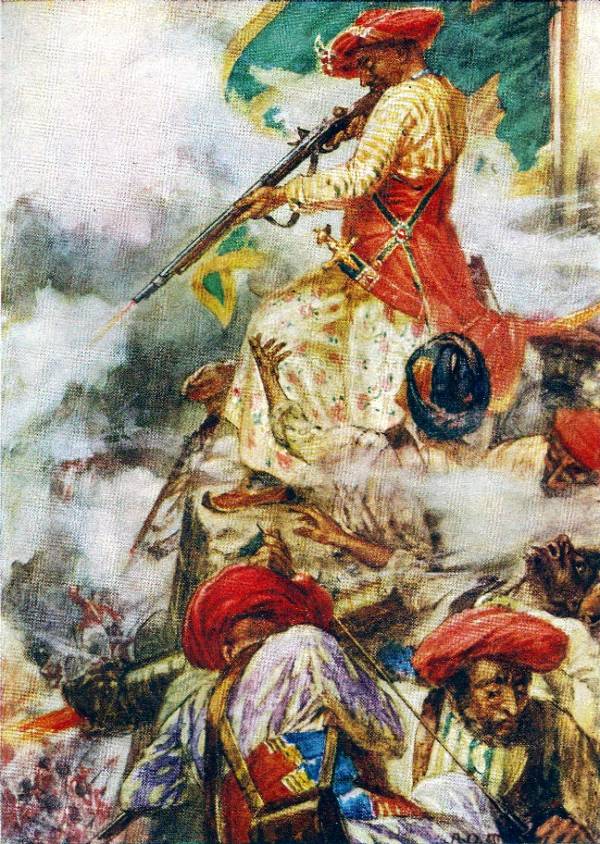The rockets are believed to have belonged to the 18th-century warrior king Tipu Sultan, who used them to fight the British East India Company.

AFP/Ganesh GANIA crowd stands around the unexploded 18th-century rockets found in Nagara, India.
More than 1,000 unexploded 18th-century rockets have just been recovered from an abandoned well at a fort in the Karnataka state in southern India.
The rockets are believed to have belonged to the Muslim warrior king Tipu Sultan, who ruled over Karnataka’s Shivamogga district at the time, according to Archaeology.
The rockets were discovered when the well that’s located at Nagara Fort was undergoing renovations and repairs.
“Excavation of the open well led to unearthing of over 1,000 corroded rockets that were stored during Tipu’s times for use in wars,” R. Shejeshwara Nayaka said to AFP from the excavation site, which is about 240 miles northwest of the state’s capital of Bangalore. “Digging of the dry well where its mud was smelling like gunpowder led to the discovery of the rockets and shells in a pile.”

Courtesy Karnataka Department of Archaeology, Museums, and Heritage (DAMH)The rockets found at the Nagara Fort in India.
The rockets were unearthed over the course of three days (July 25-27, 2018) by a team consisting of 15 members, including archaeologists, excavators, and general laborers.
The rockets — corroded and measuring between 12 and 14 inches long — were also found filled with potassium nitrate, charcoal, and magnesium powder, which allowed them to be fired.
“The rockets, which are of several sizes, are metallic cylinders filled with some powder, possibly saltpeter or some form of explosive propellant,” says R. Shejeshwara Nayaka, assistant director of the Karnataka Department of Archaeology, Museums, and Heritage (DAMH), who led the excavation.
Nayaka added: “They have circular end caps on one side, while on the other side there is an opening which lights like a fuse. We have also found some equipment that might have been used for assembling or making them.”

Wikimedia CommonsTipu Sultan during the siege of Seringapatam in 1791.
This early type of rocket was known as a Mysorean rocket, named after the kingdom over which Tipu Sultan ruled. These rockets, developed in the final decades of the 18th century, were the first iron-cased rockets to be used successfully in military combat. Later, they served as the blueprint for the Congreve rockets that the British deployed during the Napoleonic wars and the War of 1812.
G. Venkatesh, the commissioner of DAMH, added: “Records say that Tipu Sultan’s father, Hyder Ali, was the first to use metal-cased rockets. He also had an armory and factory at Nagara Fort, a strategically very important city. There is a strong possibility that this site was used as a storage point or a factory for the rockets.”
As for Tipu Sultan himself, he fought three wars against the British East India Company and was ultimately killed during the fourth war he led after the British captured his capital of Srirangapatna in 1799. But the rockets developed under his rule remain a fascinating piece of history to this day.